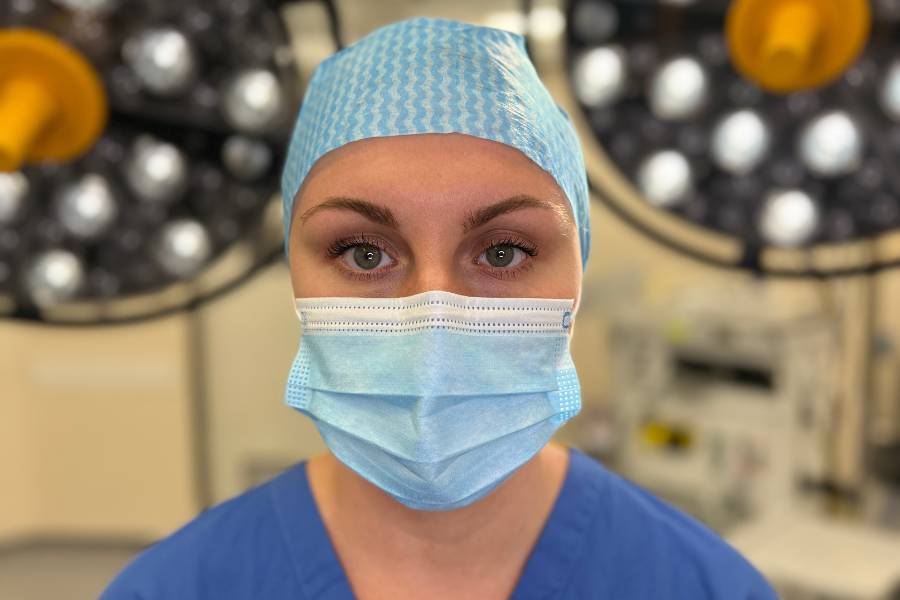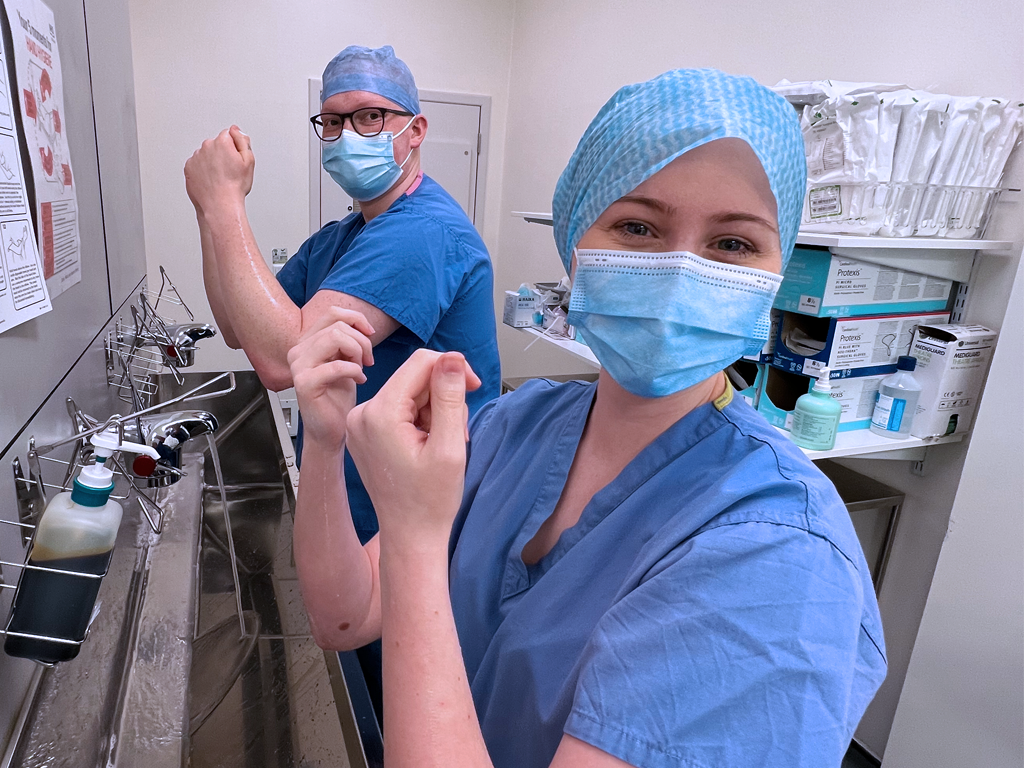How to become an operating department practitioner
To become an operating department practitioner, you'll need to complete a 2-year training programme. You can apply for training opportunities on our recruitment website.
What is a operating department practitioner?
Operating department practitioners (ODPs) provide a high standard of perioperative care to patients. They work as part of a team to make sure procedures carried out in the operating theatre are safe and effective.
ODPs have an important role in the 3 phases of perioperative care:
- anaesthetic phase – assisting the patient before surgery, preparing specialist equipment and drugs
- surgical phase – working alongside the surgeon, providing the correct surgical instruments and materials
- recovery phase – assessing and monitoring the patient

Starting your career as an ODP
Choosing subjects at school
Useful school subjects for operating department practitioners include:
- Biology
- Human Biology
- Maths
- English
Speak to your guidance teacher or careers adviser about subjects offered at your school.

Work placements and volunteering
You may find it helpful to get some healthcare experience by doing a work placement or volunteering. You’ll get training, increase your knowledge, and learn new skills. This could help you when applying to university, college or a new job with NHSScotland.
Education and training pathway
To become an ODP, you must apply for an NHS Scotland trainee ODP vacancy on our recruitment site.
Pre-registration Diploma in Operating Department Practice
You’ll study for an approved pre-registration diploma over 2 years. In Scotland, the DipHE course is delivered in partnership with the University of the West of Scotland.
Once you've completed the programme, you'll register with the Health and Care Professions Council (HCPC).
Find out more about the DipHE in Operating Department Practice.
Degree-level programme for ODPs
The Diploma in Operating Department Practice will be replaced by an undergraduate degree programme from September 2024. The existing diploma course will continue until the final cohort intake in 2023. This change will affect new ODP trainees only.
Find out more about the changes to the ODP training programme.
Get to know the role
As an ODP you’ll help and support patients having surgery or a surgical procedure, by managing and delivering a high level of care.
Your main tasks could include:
- physical examinations and clinical assessments
- monitor patients and respond to changes in their condition
- make sure the correct equipment and medication is available for each procedure, including the anaesthetic machine, intravenous equipment, and devices that secure the patient's airway
- make sure specialist equipment is available for specific procedures, including microscopes, endoscopes, and lasers
- monitor surgical instruments during each procedure
- give medications and injections
- provide care and support until the patient is ready to be transferred to a ward
- act as an advocate for patients and their families
- assess risk to make sure patient safety is maintained
- respond to emergency situations
You will also be expected to keep accurate records.
You’ll need these skills:
- caring
- collaboration
- communication
- focus
- organisation
- teamwork
- problem-solving
You’ll also need technical skills which you’ll learn during the pre-registration programme.
You could be working with:
- nurses
- anaesthetists
- surgeons
- theatre support workers
- doctors
- midwives
- radiologists
You could work in:
- operating theatres and recovery rooms, in adult and paediatric settings
- day surgery units
- endoscopy units
- maternity units
Learning and development
Once you’re qualified, you’ll undertake continuing professional development (CPD) to maintain your registration with the HCPC. In your first year as a newly qualified ODP, you’ll get extra support and guidance through the Flying Start programme.
Your CPD activities could include attending:
- courses
- lectures
- meetings
- workshops
- conferences
- mentoring
There are lots of opportunities for progression. With experience, you could work in a variety of health fields.
You could also move into a senior role over time, such as:
- surgical care practitioner
- physician’s assistant
You could also take on managerial responsibility for the staffing and management of operating theatre suites.
There are other development opportunities for you in areas including:
- education
- training
- research and development
Professional bodies
As an operating department practitioner, you must register with the Health and Care Professions Council (HCPC). You can also join the:

Become an ODP
Health Boards across Scotland are recruiting trainee operating department practitioners. You’ll complete a DipHE in Operating Department Practice over 2 years. The training programme includes online learning, practice placements, and mentor support.
Navigate page

Explore careers
Discover the skills and qualifications you’ll need for each role and what the work will be like.
Explore careers
NHSScotland Careers blog
Our blog includes how-to guides, case studies, and career resources.
Discover more